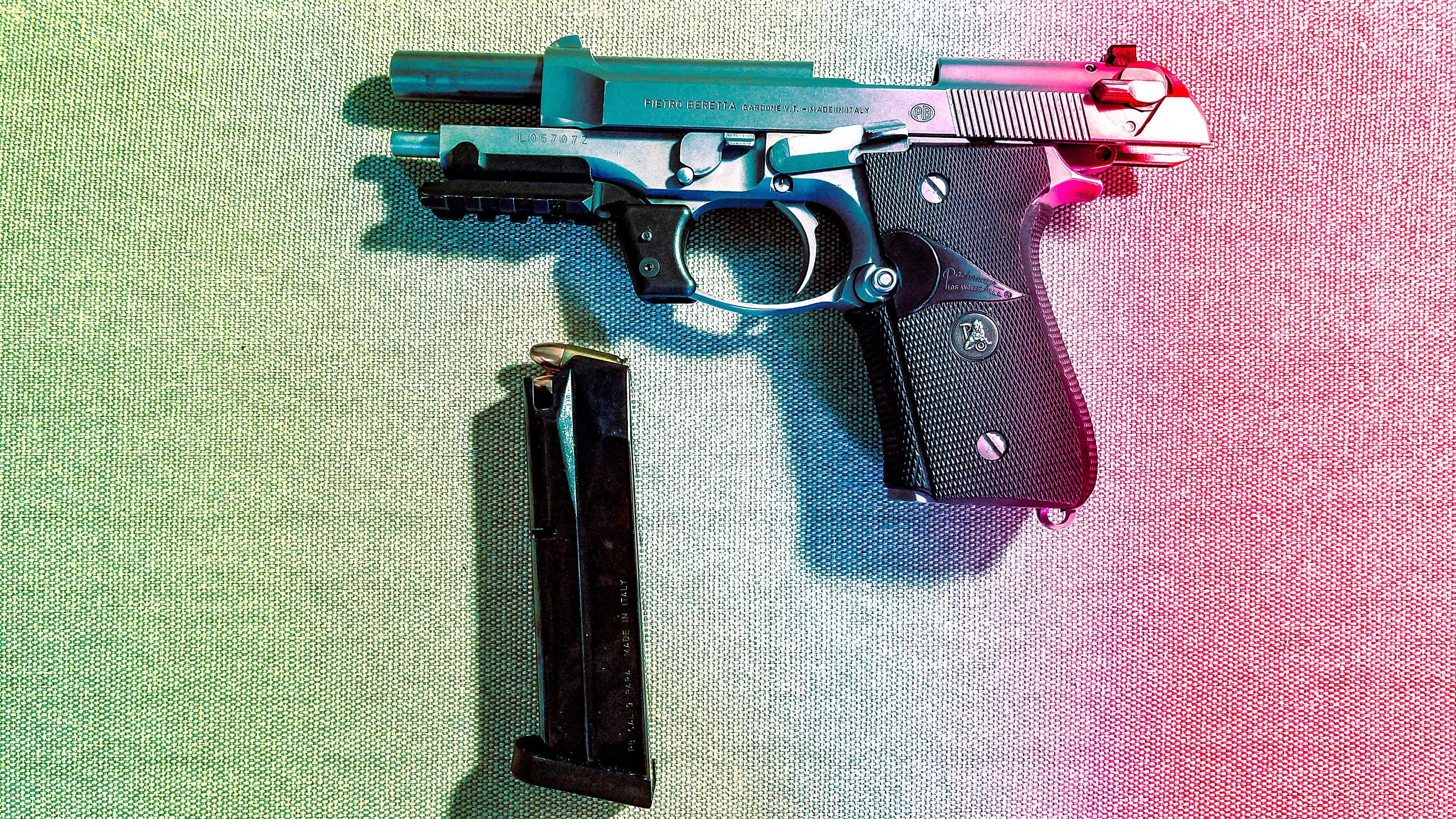
Photo by iStrfry , Marcus on Unsplash

Audio By Carbonatix
In mid-October, a 15-year-old accidentally shot and killed a 13-year-old in Dallas. This and other incidents of gun violence in the city prompted City Council member Jesse Moreno to organize a gun buyback event in collaboration with local law enforcement.
The event took place on Oct. 21, when people turned in 128 guns in exchange for $100 gift cards.
“We started thinking about what can we do at the local level to help take some guns off our streets from those folks that no longer want those firearms in their homes,” Moreno said. “Maybe they were passed on from generations or spouses that no longer needed those weapons. So it really spurred from that as something we could do at the local level since we are not really seeing any results from the federal or the state level.”
He said he doesn’t think Dallas has hosted a gun buyback program before, at least not recently. “This is, from my understanding, the first in a long time,” Moreno said. The Dallas event was modeled after similar efforts that have taken place in Fort Worth. He said he wasn’t sure what to expect, but the event attracted a good turnout. “We had folks lining up as early as 6 a.m. when our event started at 9 a.m.,” Moreno said. “I was very pleased from the response that we got. We ran out of our gift cards within the first 30 to 45 minutes of the event opening.”
The event was initiated through Moreno’s office and conducted in partnership with local law enforcement, including the Dallas Police Department and the Dallas Marshal’s Office. DPD’s role was to take the weapons to its property room to be later destroyed.
“Unfortunately, there isn’t a whole lot or any strong empirical evidence to suggest that gun buybacks are effective at reducing violence.” – Dr. James Kelsay, UTA
Moreno said he’s looking into how he can make buybacks bigger and more frequent. He said there’s some support from other City Council members who want to make this a city-wide event. “We’re also seeing a lot of response from individuals in organizations that would like to contribute financially so that we can be able to take additional firearms off our streets,” Moreno said.
Some suggest that gun buybacks don’t do much to achieve their ultimate goal: reducing gun violence.
Dr. James Kelsay, assistant professor in the department of criminology and criminal justice at the University of Texas at Arlington, said the main purpose of these gun buyback programs is to remove guns from circulation. “Unfortunately, there isn’t a whole lot or any strong empirical evidence to suggest that gun buybacks are effective at reducing violence,” Kelsay said. For one, gun buybacks generally pull a very small number of guns off the streets. At the same time, the people who are likely to participate in gun buybacks aren’t usually the perpetrators of gun violence.
Gun buybacks can serve another purpose, however. “It can really sort of galvanize the community in terms of a common goal of trying to reduce gun violence,” Kelsay said. “So, it’s sort of like a mobilization tool to bring people together, and I think that’s one of the positive things we can take from these.”
Asked how they could be more effective at reducing gun violence, Kelsay said they could be more targeted toward people likely to be involved in violence. Targeting younger people, for example, would be a good strategy. Older people are more likely to bring their guns in but less likely than younger people to be involved in violence.
But, he said, there are other strategies being deployed in Dallas today that are more effective at reducing gun violence. Hot-spot policing, when police focus resources on high-crime areas, can be an effective tool to reduce gun violence, Kelsay said. Police can also implement focused deterrence strategies to help reduce gun violence. This involves reaching out to past offenders and offering to connect them with resources for jobs, educational information and other services.
“I think the common theme among the hot-spots approach and then the focused deterrence approach is to really focus on either the places where gun violence tends to be high or the individuals who tend to be involved in these types of crimes in the first place,” Kelsay said.
“In theory, [gun buyback programs] make sense,” he said. “The problem is that there are so many firearms in circulation, and that is sort of the common thread with countries that tend to have high rates of gun violence. So, again, the aim of these kinds of programs is to reduce the number of guns in circulation, and I think that’s an admirable goal. I don’t want to try to disparage this approach, but I would say that when we try to reduce gun violence it’s important to take an evidence-based approach.”
Moreno believes there haven’t been enough studies to determine the effectiveness of gun buyback programs.
“We were able to get 128 weapons off our street,” he said. “When you compare the amount of weapons that are taken off our streets to the number of weapons that are circulated and out there, it’s minimal at this point. But we’re starting to see more and more of these programs, and I think within time we’re going to be seeing more measurable results that you can actually compare.”
Moreno said another event hasn’t been planned yet, but he and his team are looking at how they can make such events more effective. This includes involving more city leaders and gaining more financial backing so everyone who shows up can leave with a gift card. “Unfortunately, we had to turn away about 50 vehicles” because they ran out of gift cards, Moreno said. “I’m sure we would’ve had additional cars continuing to line up if we had the funds available.”